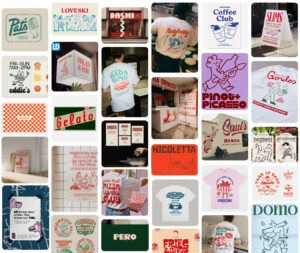Let’s talk about Pitching!
Do you like to pitch?
Yes. but only when it’s creative! I think there is something exciting about a competition of who’s the most creative.
What’s the most challenging part?
As the industry has taken to asking for strategy or naming as part of the pitch. These things come from teamwork and collaboration with a client, two things that are missing from a pitch set up. As such, pitching brand strategy becomes guess work. Unlike the advertising industry, there is no media spend to balance out the risk.
What’s the best thing about it?
It’s great to have a creative brief that you can see all the way through without the need for any rounds of revisions or feedback. It’s a “here, this is how we would do it” I think there is something exciting about a competition of who’s the most creative.
How does it feel to win?
Who doesn’t love winning. It’s great motivation for the team and a huge boost for morale.
How does it feel to lose?
Losing is fine, you can’t win them all. Though unfortunately the reality is you don’t always lose for honest reasons, and that is depressing.
What do you think the most valuable thing you learn from pitching is?
Pitching is new for branding agencies, it’s only in the last few years that this has become popular for clients in China. Previously it was based on people, credentials and your approach. As yet, I don’t think there is much value for agencies or clients in a branding pitch structure. There are better ways to assess the quality of an agency and get great work at the same time. I believe brand pitching is only raising industry fees and lowering the creative quality.
Do you like to pitch?
It is a love-hate relationship at the moment. For me personally, I love how a pitch gives us more freedom, especially when the client is looking for something that pushes the boundaries of their current state. However, because pitches tend to collide with our existing projects in the pipeline, it becomes a challenge to balance the time between these two.
What’s the most challenging part?
To provide contextual relevance to the designs we come up with, in other words, to tell the stories that complement the visuals. In my experience, a coherent story that justifies the design is the key to success and yet the most challenging part.
What’s the best thing about it?
To get to work on new brands. Thread takes on many Brand Guardian roles for various clients on a long term basis. So pitches allow the design team a temporary change of scenery (design style). Through each of the pitches, very often we can find new inspiration and bring it back to serve our retainer clients.
Through each of the pitches, very often we can find new inspiration and bring it back to serve our retainer clients.
How does it feel to win?
It is always a good feeling to be recognised! And then an excuse to grab a Gin and Tonic to celebrate.
How does it feel to lose?
It is not the end of the world. It would be great however if we could get honest feedback from the client. With the time and effort invested in each pitch process, I believe each loss is a chance to re-calibrate our offering or approach for the next pitch ahead.
What do you think the most valuable thing you learn from pitching is?
Aside from solid preparation and rehearsal, being confident and communicating your deck with a loud and steady tone is really helpful.
—
That’s a wrap! Let us know if you have any questions or want another spotlight series on another topic.
What do we think as a company?
The big picture for us at Thread, we feel that all branding agencies should not pitch ideas to clients for a number of reasons:
Respectfully, pitching ideas for free can be detrimental to the our business. Branding agencies invest time and resources into developing unique ideas that help differentiate their brand. If they give away their ideas for free, they are essentially devaluing their own work and opening themselves up to potential exploitation.
This can also take away from time and energy that should be for paying clients.Pitching ideas without fully understanding the problem or business strategy is not an effective way to approach branding. To create a successful brand, an agency needs to first understand the client’s needs, target audience, and business goals. Without this understanding, any ideas presented are likely to be generic (and AI could do that for you now!) and may not effectively address the client’s specific needs.
Pitching ideas can create unrealistic expectations. Clients may become fixated on a particular idea that was presented during the pitch, even if it is not the most effective solution. This can lead to frustration and disappointment when the branding agency later presents a different idea that is more aligned with the client’s needs.
Branding agencies should be chosen on their merits, which include their experience, expertise, and track record of success. We would love our clients to evaluate agencies based on their ability to solve problems, not on their ability to come up with flashy ideas during a short pitch meeting. Hopefully, by choosing an agency based on their merits, clients are more likely to receive a solution that is tailored to their specific needs and goals.
Let us know what you think?!




